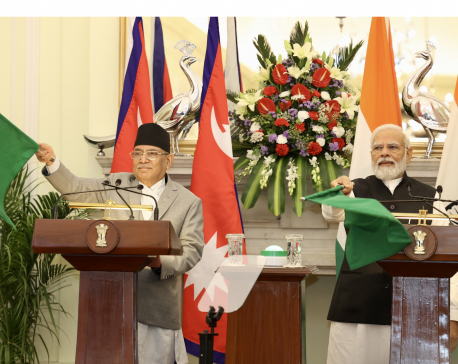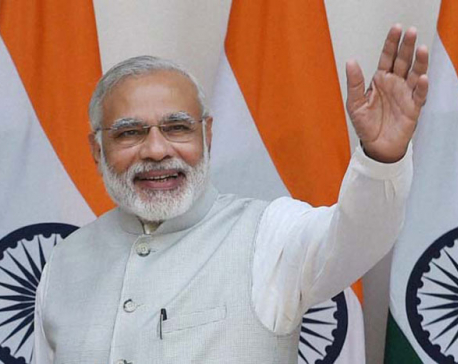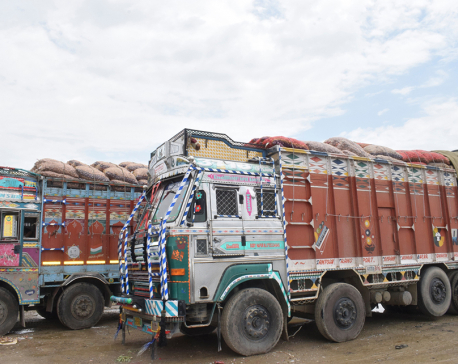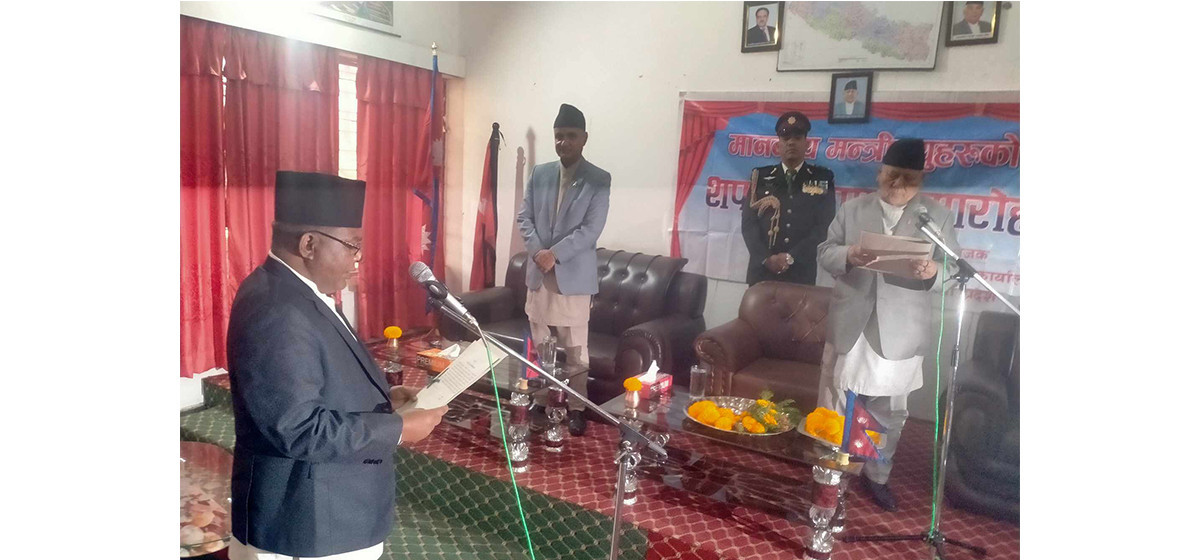
OR
Editorial
Mockery of Nepal’s green pledges
Published On: June 4, 2023 07:40 AM NPT By: Republica | @RepublicaNepal

Nepal's recent agreement with India to construct petroleum pipelines and storage facilities at a significant cost raises concerns about resource allocation efficiency. While the intention may be to ensure a smooth supply of petroleum products, it is essential to consider alternative solutions that align with Nepal's national interests. As a newspaper, we strongly believe that Nepal should focus on promoting the use of electric vehicles (EVs) as a cost-effective and sustainable solution, instead of investing in new petroleum pipelines and storage facilities. The agreement between Nepal and India highlights the need for substantial investments in pipeline extensions and storage depots. India will allocate Rs 17 billion for three projects, while Nepal is required to invest Rs 9 billion specifically for one storage depot, according to the agreement. The projected cost of these projects, totaling Rs 26 billions, could be better utilized for other purposes that serve Nepal's national interest.
Nepal has set an ambitious target to generate 15,000 MW of electricity by 2030. However, without timely and concrete actions to significantly increase electricity consumption, there is a high risk of wasting a substantial amount of electricity produced through significant investments. The availability of domestically-produced electricity at a cheaper cost presents Nepal a unique advantage in promoting electric vehicles due to the affordable availability of such vehicles in the market. By strategically focusing on EV adoption, Nepal can reduce its dependence on petroleum products while simultaneously contributing to environmental sustainability. The funds allocated for petroleum infrastructure projects can be redirected towards developing charging infrastructure and providing incentives for electric vehicles.
Promoting electric vehicles brings numerous economic and environmental benefits to Nepal. Firstly, it reduces the country's dependence on imported petroleum products, leading to improved energy security. The funds saved from reduced oil imports can be invested in other sectors crucial for the nation's progress, such as healthcare, education, and infrastructure development. In fact, Nepal has been struggling with a significant trade deficit primarily due to substantial spending on imported goods, particularly petroleum products. In the fiscal year 2021/22, this landlocked country faced a trade deficit of Rs 1.72 trillion, primarily driven by imports totaling Rs 1.92 trillion. Notably, the import bill for petroleum products accounted for approximately 20 percent of the total imports. Secondly, the promotion of EV has environmental benefits. EVs produce zero tailpipe emissions, resulting in cleaner air and a healthier environment. This transition aligns with global efforts to mitigate climate change and reduce greenhouse gas emissions. Nepal has already pledged to reduce carbon emissions to zero by 2045 through its Nationally Determined Contribution (NDC) submitted during the United Nations Framework Convention on Climate Change (COP26) held in Glasgow, Scotland, in November 2021. Nepal, with its abundant renewable energy resources, can further enhance the environmental benefits of electric vehicles by utilizing clean energy sources for charging infrastructure.
While petroleum pipelines are seen as valuable projects initiated by India, their implementation involves certain indirect costs when it comes to bilateral cooperation. The government has often faced criticism for prioritizing supply-driven policies over demand-driven ones, and unfortunately, it has failed once again in this regard. It is imperative for the government to carefully evaluate and accept foreign projects that not only ensure high productivity but also align with national interests. Needless to say, Nepal finds itself at the crossroads, where decisions must align with its long-term interests. The proposed investment in petroleum infrastructure projects, while aimed at ensuring fuel supply, may not be the most efficient use of resources. Instead, Nepal should seize the opportunity to promote electric vehicles, leveraging their affordability and aligning with global sustainability goals.
While promoting electric vehicles may seem like a straightforward solution, certain challenges need to be addressed. These include the limited availability of charging infrastructure, concerns about range anxiety, and the need for supportive policies and incentives. However, with proper planning and coordination between the government, private sector, and international partners, these challenges can be overcome. Investing in charging infrastructure and establishing a widespread network of charging stations across the country is crucial. Public-private partnerships and collaborations with renewable energy companies can help expedite the development of charging infrastructure. Additionally, the government can introduce attractive incentives, such as tax breaks, subsidies, and special privileges, to encourage individuals and businesses to transition to electric vehicles. By investing in charging infrastructure and providing incentives, Nepal can pave the way for a greener, more sustainable future while simultaneously utilizing the allocated funds for other pressing national priorities. We urge the government to prioritize electric vehicles and reject the unnecessary construction of costly petroleum pipelines.
You May Like This

Two petroleum pipelines to be constructed for smooth supply of petroleum products
KATHMANDU, June 1: An agreement has been reached between Nepal and India for the construction of two important pipelines in... Read More...

Nepal good friend of India: Deuba, India ready to support Nepal's development: Modi
NEW DELHI, Aug 24: Prime Minister Sher Bahadur Deuba, who is currently on a five-day state visit of India, said... Read More...

Fruits, vegetables from India stopped at customs, requiring pesticide clearance
BHAIRAHAWA, June 24: Following the government's decision that fruits and vegetables will be allowed entry into the country only after verifying... Read More...







Just In
- Karnali: Maoist Center’s Pariyar appointed as minister without portfolio
- Illam by-election: Nepal-India border to be 'sealed' from midnight today
- Gold price rises by Rs 500 per tola
- Emir of Qatar returns home after wrapping up state visit to Nepal
- Senate passes bill forcing TikTok’s parent company to sell or face ban, sends to Biden for signature
- PM Dahal hosts luncheon in honor of Qatari Emir
- Tata Sumo accident in Kavre leaves 10 injured, three in critical condition
- West Indies ‘A’ cricket team arrives in Nepal



_20240423174443.jpg)








Leave A Comment